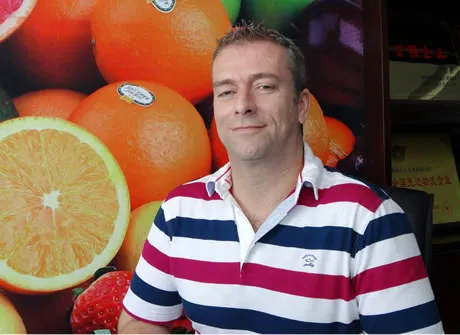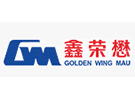
Growing demand imported product
An important reason for focusing on import, Roland says, has been the big demand for Western products by Chinese consumers. On top of that there is the Chinese consumer’s distrust towards the local produce, due to recent food scandals, which also led to a run on milk powder from Europe. “China has the same problems as a country like India. There are many small growers, making control difficult, if not impossible. There are large-scale cultivation projects, often financed by the government, but you often see a lack of technical know-how with these companies. I had expected this evolution to be faster. Golden Wing Mau does invest in support and transfer of knowledge to cultivation projects like farm-to-fork in conjunction with retailers.”
Golden Wing Mau acquires its products both from own cultivation companies and from companies it has joint ventures with. “For us, the biggest products are apples, melons, pomelos and pears. Recently, we’ve also been trading more and more in (organic) blueberries and (golden) kiwis,” Roland says. Because of the large volumes, the Chine company has separate import departments for kiwis and bananas. When it comes to import, grapes, citrus, cherries and apples top the list. Important import countries are Chile, followed by South Africa, Peru, New Zealand, Australia and the United States. From Europe, the supply of French apples is the biggest.
Conference pears
The number of allowed fruit and veg products on the Chinese market has increased rapidly in recent months, ranging from avocados from Chile, nectarines from Australia (testing stage), soft fruit from Mexico and apples from South Africa, and Red Delicious apples and citrus from the US. With the market opening up to Dutch Conference pears, the first Dutch fruit and veg products has now also been allowed onto the Chinese market. “We have shipped our first container,” Roland says. “I definitely see opportunities for the Conference pears in China, but mainly in retail, and to a lesser extent at wholesalers. Chinese consumers want to eat their product right away. And you know, when a Conference pear is hard, its flavour isn’t particularly good. So the consumer has to be informed.”
According to the import manager, the Chinese fresh produce chain is going through the same motions as retail just as what happened in the past thirty years in Europe. “The Chinese retail market is growing fast, mainly from China itself. Some Western retailers, on the other hand, are having a very hard time in China, with a retailer like Tesco being an example of that. It’s hard to gain a foothold in China. On the one hand, because it’s often not understood how the Chinese consumer buys their products, and on the other hand, because mistakes are made in distribution.” The past years, many Dutch fresh produce trading companies have opened a sales office in Asia. “I expect this development to continue. In Dutch trade, there’s a big entrepreneurial spirit, and if you want to achieve growth somewhere, you’re in the right place here,” Roland concludes. “On the other hand, it’s still a tough market to get something up and running as a non-Asian company. And so, success varies a lot from company to company.”
Direct sourcing
Chinese retailers are increasingly focusing on direct sourcing. “That’s the same development we’ve seen in Europe. The Chinese supermarkets have enormous potential, thanks to the developing middle class. The purchasing pattern is doubling, a trend which will only continue. People have a different way of buying and cooking, and eat out more often. That applies to other continents as well, but online sales of fresh produce are much more accepted here. Now, those online sales are possible to a limited extent. In large cities, online sales can be done quite well, but if you want to do it really well, you’ll have to be able to deliver all across China, and that’s a big logistical challenge. Distribution in China is one of the keys to success, but there’s still a long way to go there. If you don’t have the logistical function and the network, it becomes very hard to supply to retail.”
For more information:

Roland Gels
Golden Wing Mau
Tel: +86 755 2265 3512
Mob: +86 138 2657 6681
roland@wingmau.com
www.wingmau.com
